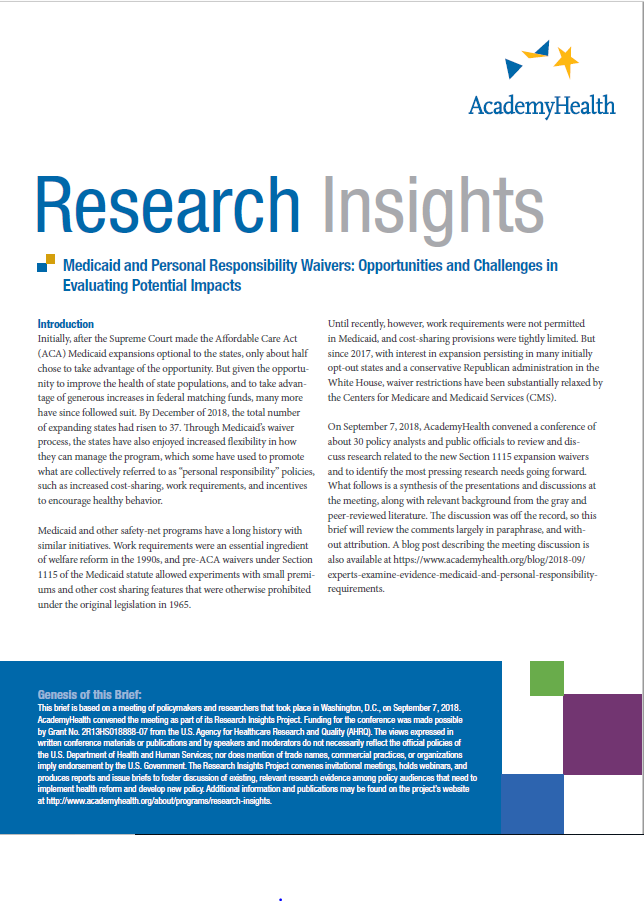
Medicaid and Personal Responsibility Waivers: Opportunities and Challenges in Evaluating Potential Impacts
This issue brief is a synthesis of the presentations and discussions at a September 2018 meeting, along with relevant background from the gray and peer-reviewed literature. The discussion was off the record, so comments are paraphrased and without attribution. The brief is part of the Agency for Healthcare Research and Quality-funded project Research Insights, managed by AcademyHealth.
In an effort to encourage more prudent use of health services and lifestyle choices that support better health outcomes, states are leveraging increased flexibility through Medicaid’s waiver process to promote what is collectively referred to as “personal responsibility” policies, such as increased cost-sharing, work requirements, and incentives to encourage healthy behavior.
On September 7, 2018, AcademyHealth convened a conference of about 30 policy analysts and public officials to review and discuss research related to the new Section 1115 expansion waivers and to identify the most pressing research needs going forward. Key takeaways from the discussion include:
- Considerable evidence on premiums show a consistent downward impact on enrollment when premiums are added or increased. The net financial effects of premium revenue, disenrollment and administrative costs bear close watching.
- When it comes to cost sharing policies, more research is needed to pinpoint the disconnect between waiver program goals of expanded coverage and increased personal responsibility and design details resulting in high administrative costs or sharp drops in enrollment.
- While work requirement programs in welfare have provided lessons learned, it remains unclear whether the principles of welfare-to-work apply in the same way to health care provision.
- Evidence of effectiveness of healthy behavior incentives is limited to tightly targeted programs with measurable outcomes built in, but experts agreed on opportunities to better engage providers and improve program design for meaningful evaluation results.
Funding for this conference was made possible by Grant No. 2R13HS018888-07 from the U.S. Agency for Healthcare Research and Quality (AHRQ). The views expressed in written conference materials or publications and by speakers and moderators do not necessarily reflect the official policies of the U.S. Department of Health and Human Services; nor does mention of trade names, commercial practices, or organizations imply endorsement by the U.S. Government. The Research Insights Project convenes invitational meetings, holds webinars, and produces reports and issue briefs to foster discussion of existing, relevant research evidence among policy audiences that need to implement health reform and develop new policy.